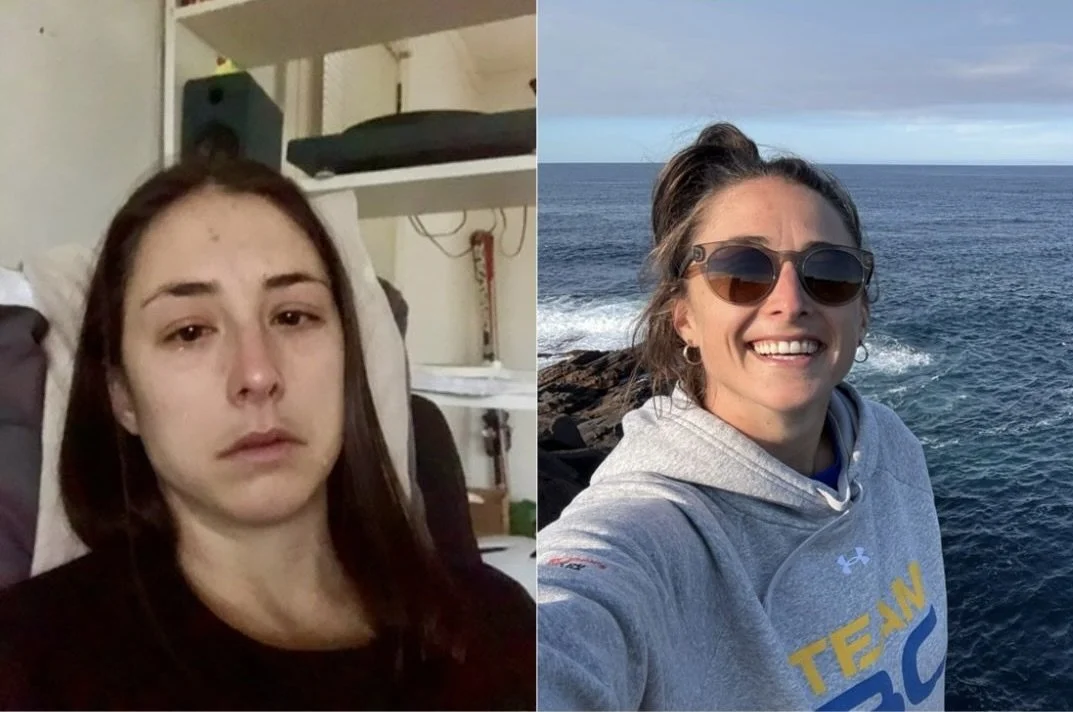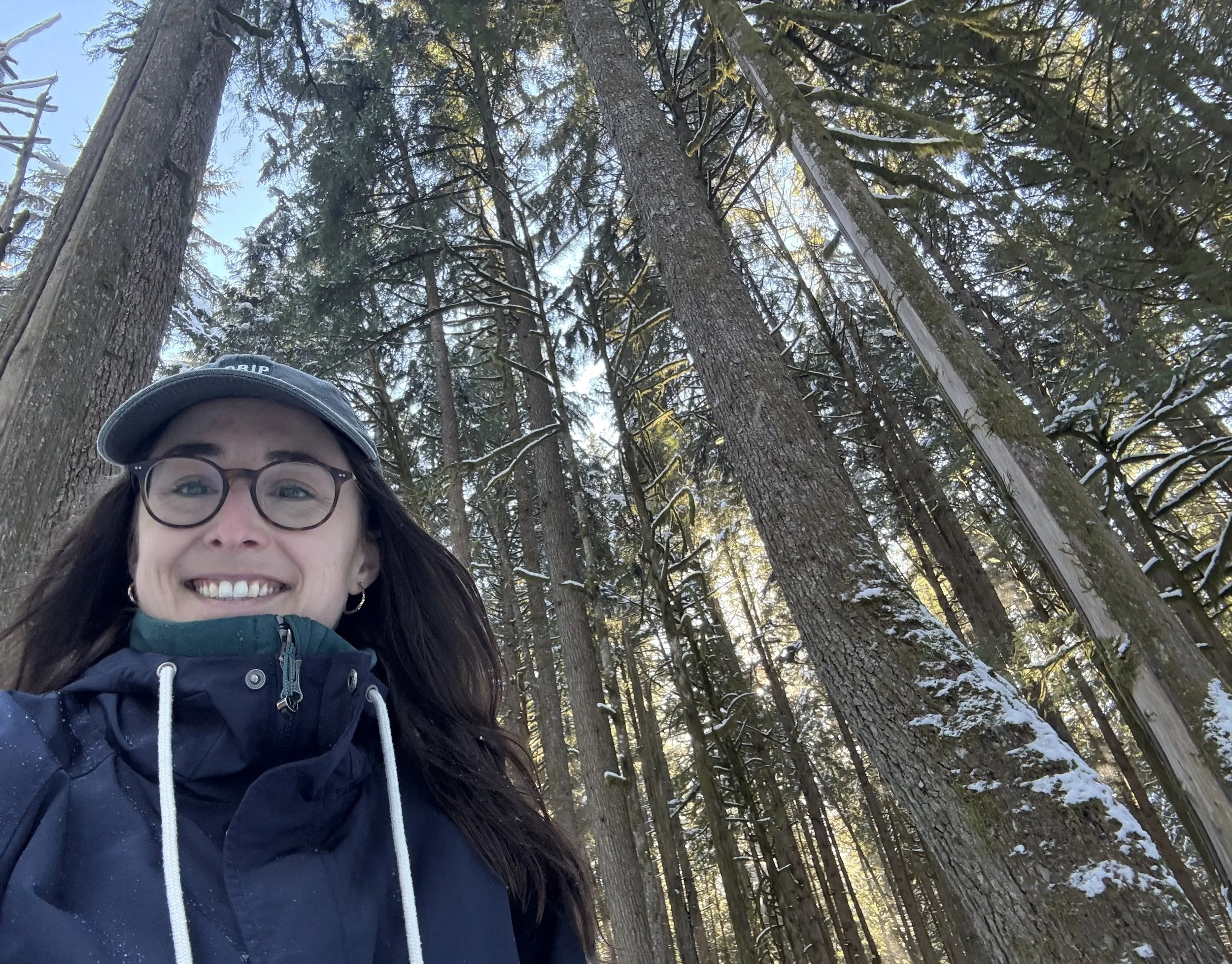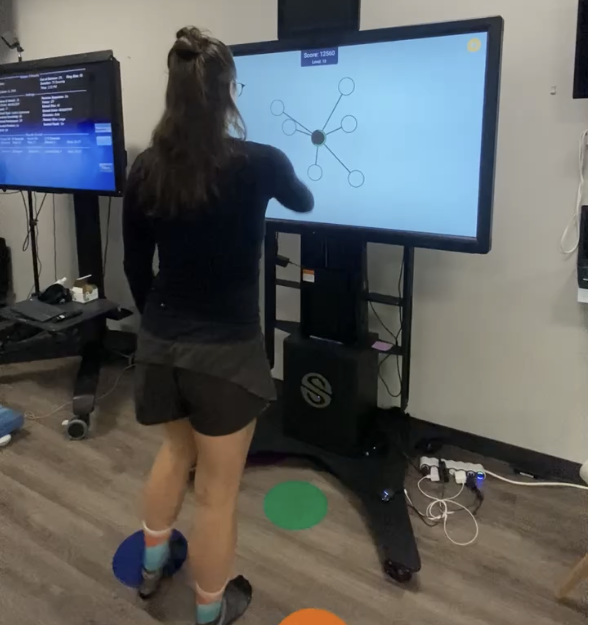6 Skills That Helped Me Heal Through Prolonged-Concussion Syndrome
TLDR; Recovery from prolonged concussion syndrome (PCS), without completely losing yourself in the process, boils down to 6 key skills: adaptability, neutrality, regulation, acceptance, pacing and supportive environments.
It’s been 1,738 days since I received my most recent concussion. Of those, maybe 100 days have been completely symptom-free. That's less than 5% of my time since the accident. Fun times.
I’m not going to dive into my entire five-year saga here, or list how horrific the mental health experiences are with prolonged concussion symptoms (PCS). Chances are, if you’re reading this, you or someone you know has been impacted by a concussion.
Instead, I want to share the strategies that actually helped my concussion recovery.
The difference mental health support can make. Year One vs. Year Five
Adaptability
Call it resilience, psychological flexibility or grit - whatever works. I see it as the ability to adapt to changing circumstances, with some level of grace and alignment with your values.
How did I do this? Not a random values worksheet. Don't get me wrong, those can help, but this was deeper. Over a series of months, I became clear on what was truly important to me.
I realized I could make choices (even when symptoms were bad) that aligned with what I valued most. Did I do this perfectly? No. Were the choices easy? Absolutely not. But I practiced enough that when things went sideways, I had a compass.
Neutrality
I wish I could say I became the queen of self-compassion. Truthfully, that’s still a work in progress. But neutrality? That I can do.
I leaned into self-compassion by imagining how my four-year-old niece (who basically thinks I’m a fairy princess hero) would talk to me. That softened things.
Then, instead of beating myself up with thoughts like, “I’ll never get better” or “I should be able to do this”, I started swapping them for neutral statements: “I’m in pain right now” or “This is as much as I can do today.
Bonus trick: whenever I felt myself spiralling, I would think of things I was grateful for until I felt centered (for me, this feels like a warm sensation in my chest). Sounds corny, but it works. So does calling a friend who will help you detach from your inner critic.
Regulation
Everyone and their grandmother is talking about nervous system regulation these days, and for good reason. Our nervous system influences literally everything we think, feel, and do. So yeah, it matters.
Where I got stuck was thinking regulation looked like meditation retreats, 45 minutes of breathwork, or some insanely expensive “vagus nerve stimulator". What I learned was finding regulation techniques that I liked and doing them consistently is was matters.
Dysregulation plays an important role in living. It’s not inherently bad, but leaving it unmanaged is fuel for your symptoms.
For me, regulation meant building a personal toolkit :
Soundscapes and binaural beats
Journaling
Walking in nature (five minutes outside can shift everything)
Environmental cues—like putting sticky notes near my kettle to remind me to pause and breathe while waiting for water to boil
It doesn’t have to be complicated. It has to be consistent.
Acceptance
Yes, acceptance is difficult, and like self-compassion, it’s a work in progress.
Concussion recovery isn’t just about managing symptoms. It’s about grieving the life you thought you’d have while slowly learning to live in your “new reality.” That grief is normal—it doesn’t mean you’re weak, it means you’re human.
A big part of the challenge is the loss of control, as symptoms can shape so much of daily life. Recovery can also nudge you to turn inward, often without the usual distractions we lean on to cope. While that can feel difficult, it can also open space for reflection and new ways of connecting with yourself.
Acceptance comes in both small and big forms.
Small acceptances might look like the realization people won’t fully understand your symptoms, or acknowledging you don’t have the energy to socialize or work. Start here. Each time you say, “This is where I’m at today” you’re practicing acceptance.
The bigger acceptances are harder. For me, it meant letting go of career timelines and ending relationships that no longer served me or my healing. The grief was heavy, and what I found on the other side was exactly what I needed - fulfillment from a more balanced career and connections so genuine, I didn’t know they were possible.
Many of the clients I work with discover their pre-concussion goals were more about societal programming than genuine desire. Letting go of those can feel freeing. Letting go of dreams tied to identity takes more time and support.
I think the most important support for acceptance is having a good therapist and a supportive community.
That said, some practical ways to build acceptance in PCS recovery:
Ground through your body - tune into your senses rather than the stories in your mind.
Have reminders to take things one day or week at a time
Practice neutral self-talk
Acceptance doesn’t mean giving up. It means acknowledging reality so you can build something new within it.
Planning & Pacing
Six months into my concussion, my physiotherapist gave me the “you need to slow down” talk. We discussed yoga a few times, so I said “okay - I’m going to get soooo good at yoga!” She looked me dead in the eyes and said “you’re missing the point.”
Turns out, you can’t compete your way out of a brain injury. Who knew?
Instead, I had to learn planning and pacing. This involves listening to my body in the moment, setting realistic plans for my days, and stopping before I crashed. This was a slow (and painful) lesson. But the more you push yourself past your window of tolerance, the longer you take to recover. This is known as the “boom or bust” cycle.
For most people, pacing feels unnatural. But it’s also a non-negotiable for long-term recovery. Some simple approaches:
Schedule Recovery Time - The amount of time should be based on how difficult the task is for you and your brain. For instance, if you have a physio appointment, block off 30 mins once you’re home, where you have minimal sensory input. If you have to fold laundry, set aside 5 mins to sit outside in the sun without a phone. Know what works for you, this is more art than science.
Identify Mini-Targets - Work with your practitioners on long-term goals, but ask them to identify what progress would look like this week. This provides you with something to focus on instead of comparing to pre-concussion levels.
Know your Zones - I highly recommend getting an Occupational Therapist to help you with this.
Use Brain Breaks - Use timers/friends to remind you to take a pause. For me, this would look like my friends stopping our bike ride every 10 mins so I would rest before my headache got too bad. I would tell them what I needed before the ride so they could hold me accountable.
Consistently Regulate - Identify and stick to regulation exercises you enjoy. These aren’t just for when symptoms are flaring up, embedding them in your routine facilities recovery.
Curate Your Environment
This one’s hard to explain, but every single concussion client I’ve worked with agrees with me in saying your environment is essential. Close your eyes for a second and imagine that feeling when you’re in nature and see something that is awe-inspiring… its about recreating this.
Curating physical spaces that provoke a sense of calmness, inspiration and stability have been lifesavers for me. Might seem insignificant but I believe these environements are mandatory for recovery.
This includes people. Prioritize those that help you feel more neutral (or even compassionate) towards yourself. Those who support you without being prompted and who genuinely have your best interests at heart.
My final thoughts…
I’m not “healed.”
Physically, I’m around 75% better. Mentally, I feel like a new person. I am living with more awareness and alignment than ever before. Concussion recovery isn’t about getting back to who you were. It’s about being present with who you are today while creating a life that feels true for you.
If you’re in the middle of PCS, I know how dark and frustrating it can feel. My advice? Don’t aim for perfection. Aim for adaptability. Build small practices that regulate your body, soften your self-talk, and surround yourself with spaces and people that remind you you’re not alone.
If you or someone you know could use support, please reach out.



